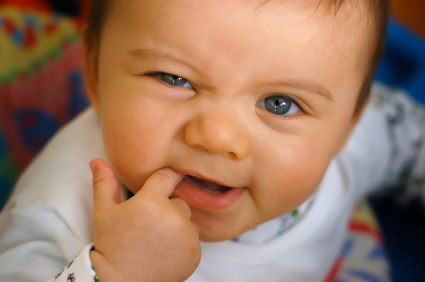
Did your parents save your baby teeth? If not, they should’ve! This practice might seem strange, but it’s actually helpful for several purposes. You need to save those baby teeth after the tooth fairy leaves because your children can benefit.
Here are three reasons why you might want to keep your kids’ baby teeth.
1. Stem Cell Use
Your children’s baby teeth contain stem cells. What are stem cells? These are substances that help your body repair damaged areas. They exist in the human body in your brain, heart and more. In other words, you need stem cells to live.
It’s possible to find stem cells in the dental pulp that sits in the tooth’s center. If you preserve baby teeth, you’ll have access to stem cells down the line. That’s a great resource to have when your kids suddenly need replacement tissue. You won’t have to put their name on a donor list.
Why are baby teeth better for stem cells? They contain special cells that adult teeth don’t have. Plus, it’s more likely that baby teeth stem cells will survive several years. You can think of baby teeth stem cells as the most “pure” version of stem cells.
2. Links to Autism
It might be possible to detect autism by analyzing baby teeth. Those with autism have different zinc and copper levels than people who don’t have autism. If you look at baby teeth growth layers, you can see how a child’s metabolic cycle indicates their body’s zinc and copper content.
This research doesn’t mean we can predict or prevent autism yet. It’s become easier to identify and diagnose autism before kids even lose their baby teeth, which happens at around age six. However, we can keep studying baby teeth to figure out early indicators — like at a specific prenatal stage.
Consider donating your kids’ baby teeth to science. There’s a chance that you could get their baby teeth tested, too. It’s not always easy for doctors to detect specific autism types right away. If you think your child has autism, you might be able to receive a better diagnosis by bringing their baby teeth to their physician’s attention.
3. Sentimental Purposes
This point might not be one that every parent wants to try. That said, it’s relatively common for moms and dads to keep sentimental objects from their kids as they grow older. In fact, you probably have a hair trimming from their first haircut, right?
If you want to keep a memorable object that highlights your children’s childhood, you could save their first baby tooth. It’ll be interesting to show them what their teeth used to look like when they were younger. Plus, you can feel like a new parent all over again when you take a look back in the future.
When Do Kids Lose Their Baby Teeth?
A child will usually be around six years old when they lose their first baby tooth. However, your kids can lose their teeth as early as four years old and as late as eight years old. It’s relatively easy to predict, though. If they cut their teeth early, you can expect them to lose them early — and vice versa.
We grow 20 baby teeth that get lost throughout childhood. This process happens over several years. The final baby teeth usually fall out when your kids are 12-13 years old. Those baby teeth become replaced with adult teeth that we have forever.
How to Store Baby Teeth
Have your children already lost teeth? If so, you should know how to store the next ones properly. These steps won’t take more than five minutes. As a result, you’ll have a baby teeth collection that you can use for different purposes.
Here’s what to do after the tooth fairy visits:
- Clean the teeth. Use a simple soap and water solution.
- Disinfect the teeth. It’s essential to scrub the tooth’s exterior with isopropyl alcohol. This part helps protect the teeth.
- Dry the teeth. There are few ways to ensure the teeth get dry enough. Try a cotton towel or dry them with sunlight.
- Seal the teeth in a clean plastic bag. You can keep them wherever there’s a dry, mild environment.
If you want to store their teeth to preserve stem cells, you need to take special care. Call your kids’ dentist before they lose any more teeth. They’ll set a time to extract the baby teeth. Then, you send the teeth to a lab where scientists extract and store the stem cells. You can access those stem cells whenever you need them.
Your Kids Can Benefit From Storing Baby Teeth
There’s no denying that your family can benefit from storing baby teeth. Hopefully, you never have to use the baby teeth for health reasons — but when they’re a great resource when you do. Consider these points when deciding whether you should keep them.



